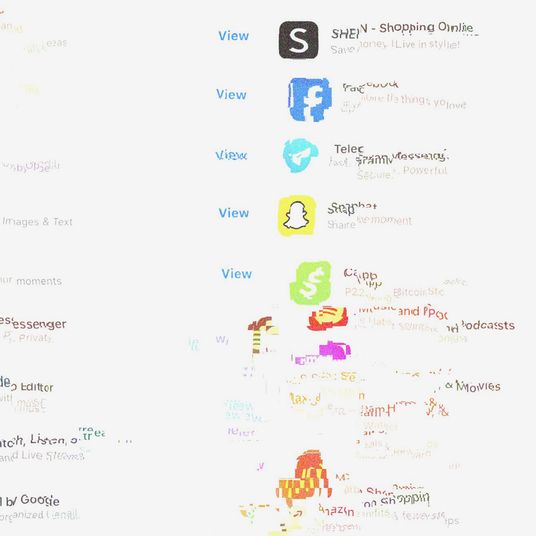The Internet. It’s good for so many things! Like looking up directions or recipes or what the name is of the guy who played the dad in Sixteen Candles, or reading urbane and witty commentary on daily news events. (Ahem.) It’s also a place where, almost every single day, you can witness full-grown adults abandoning the decorum with which they conduct themselves in their “real” lives and laying into each other with all of the rage and animal emotion of Mike Tyson attacking Evander Holyfield. Instances of people attacking one another “face” to virtual “face” occur with such frequency, and in so many corners of the web, that it’s hard to keep track of what the best fights are. In fact, this week, there have already been four big ones, and it’s only Wednesday! Which is why we’re providing a handy guide to the best fights on the Internet this week (so far!).

Matt Taibbi (left) accuses Goldman Sachs of dishonesty. We say, “At least CEO Lloyd Blankfein is honest about his male-pattern baldness!”Photos: True Slant/Getty Images
Matt Taibbi versus Goldman Sachs
Summary: Taibbi took 100 years of Goldman Sachs conspiracy theories and packaged them together for the reading pleasure of teenage boys in the current issue of Rolling Stone.
Opening Shot: Taibbi: “The world’s most powerful investment bank is a great vampire squid wrapped around the face of humanity, relentlessly jamming its blood funnel into anything that smells like money.”
Opponent Reaction: “[Taibbi’s] story is an hysterical compilation of conspiracy theories,” Lucas Van Praag wrote in an e-mail to the Post. “Notable ones missing are Goldman Sachs as the third shooter [in John F. Kennedy’s assassination] and faking the first lunar landing. We reject the assertion that we are inflators of bubbles and profiteers in busts, and we are painfully conscious of the importance in being a force for good.”
Round Three: Taibbi responds on his personal blog with another conspiracy theory: “I’m aware that some people feel that it’s a journalist’s responsibility to “give both sides of the story” and be “even-handed” and “objective.” A person who believes that will naturally find serious flaws with any article like the one I wrote about Goldman. I personally don’t subscribe to that point of view. My feeling is that companies like Goldman Sachs have a virtual monopoly on mainstream-news public relations…and there are probably another thousand poor working stiffs who are nudged into pushing the Goldman party line by their editors and superiors (how many political reporters with no experience reporting on financial issues have swallowed whole the news cliche about Goldman being the “smart guys” on Wall Street? A lot, for sure).”
Winner: Goldman Sachs. They sound more amused than displeased by the story, and rightly so. Also, note Von Praag’s usage of an hysterical. Well played. (We’ll pick up that briefcase from you on Tuesday, L-man.)

Photo: Istockphoto/Patrick McMullan
Dennis Kneale versus Zero Hedge
cc: The Entire Internet, and the Estate of Jim Henson
Summary: CNBC host Dennis Kneale says the recession is over on his show, a lot of bloggers make fun of him for it, and he lets it get under his skin. Hysteria ensues.
Opening Shot: Zero Hedge’s Tyler Durden posts a video of Dennis Kneale in which he announces “The Great Recession Is Over!” with the following commentary: “And I thought the Sanford letters were going to be the funniest thing posted here this afternoon. Oops … ”
Opponent Reaction: This should really be watched in full, but: “Last Friday I had predicted that some cynical mean-spirited bloggers would trash me, and they haven’t let me down,” Kneale responds on his show Tuesday night. “Their invective is lighting up the anonymous dark and cowardly corners of the blogosphere. [Blogs such as Zero Hedge] have jeered at my optimism. They say I’m irritating and unwatchable … and they call me Beaker after that Muppet, which I have to admit is kind of funny. Less funny was comparing me to a-300 pound woman in a thong bikini on the beach; they don’t know whether to laugh or cry or throw up. Another comment asked: Was that a Saturday Night Live skit? That was no comedy sketch! That was hope. And fortitude, you anonymous dickweeds. And I say dickweed because it is indeed a plant, it is akin to pond scum, and name-calling seems to be lingua franca of the blogosphere.” He says he invited said dickweeds on his show to defend themselves, but they refused.
Round Three: Zero Hedge responds with a lengthy entry concluding: “Direct attacks by Dennis against Zero Hedge readers with pejoratives such as “digital dickweed” is somewhat beneath a person who, at least in his personal view, is sufficiently erudite to have an informed opinion on such critical issues as the end of a recession. In conclusion, I have no bad blood with Dennis at all — I believe it would greatly benefit both Dennis’ viewers as well as my readers to have a sensible discussion on this very relevant topic. I have proposed several ways in which this can be achieved: if Dennis would like to take on the challenge, I am game. If not, I understand: after all Zero Hedge is at the forefront of the ‘anonymous, dark and cowardly’ blogosphere, whose corners Dennis would be the last person to brave as we deal not with the ethereal, bright lights of ‘hope and fortitude’ but scary, mysterious concepts like facts and substance.”
Winner: Zero Hedge.

Photos: Patrick McMullan
Chris Anderson versus Malcolm Gladwell
Summary: The Wired editor, already under attack for plagiarism in his book Free, received a bad review from the author of The Tipping Point. This is especially awkward, as a blurb for his first book on his own website indicates that Gladwell is kind of his idol: “The Long Tail is now just part of the parlance — no more needing a credit than an invocation of the Tipping Point requires a link to Malcolm Gladwell.”
Opening Shot: Gladwell takes issue with Anderson’s “insistence that the relentless downward pressure on prices represents an iron law of the digital economy. Why is it a law? Free is just another price, and prices are set by individual actors, in accordance with the aggregated particulars of marketplace power. ‘Information wants to be free,’ Anderson tells us, ‘in the same way that life wants to spread and water wants to run downhill.’ But information can’t actually want anything, can it? Amazon wants the information in the Dallas paper to be free, because that way Amazon makes more money. Why are the self-interested motives of powerful companies being elevated to a philosophical principle?”
Opponent Reaction: Anderson writes a post on wired.com titled, “Dear Malcolm, Why So Threatened?” Oh, dear.
Winner: Gladwell, although he’s now fending off his own attackers.

Photo: Getty Images/Roberta Silman.com
Alice Hoffman versus Roberta Silman
Summary: Over the weekend, novelist Hoffman reacts badly to a lukewarm review of her new book penned by freelance critic Roberta Silman. Very badly.
Opening Shot: Silman, in the Globe: “This new novel lacks the spark of the earlier work. Its vision, characters, and even the prose seem tired.”
Opponent Reaction: Hoffman goes on a 27-tweet tirade. Examples of Tweets include: “Roberta Silman in the Boston Globe is a moron!” “Now any idiot can be a critic! if you want to tell Roberta Silman off her phone number is [redacted].” “Tell her what u think of snarky critics.”
Round Three: Hoffman came to her senses by Monday: “I feel this whole situation has been completely blown out of proportion,” she said in a statement from her publisher. “In the heat of the moment I responded strongly and I wish I hadn’t. I’m sorry if I offended anyone. Reviewers are entitled to their opinions, and that’s the name of the game in publishing. I hope my readers understand that I didn’t mean to hurt anyone and I’m truly sorry if I did.”
Winner: Silman, who is 75.





























